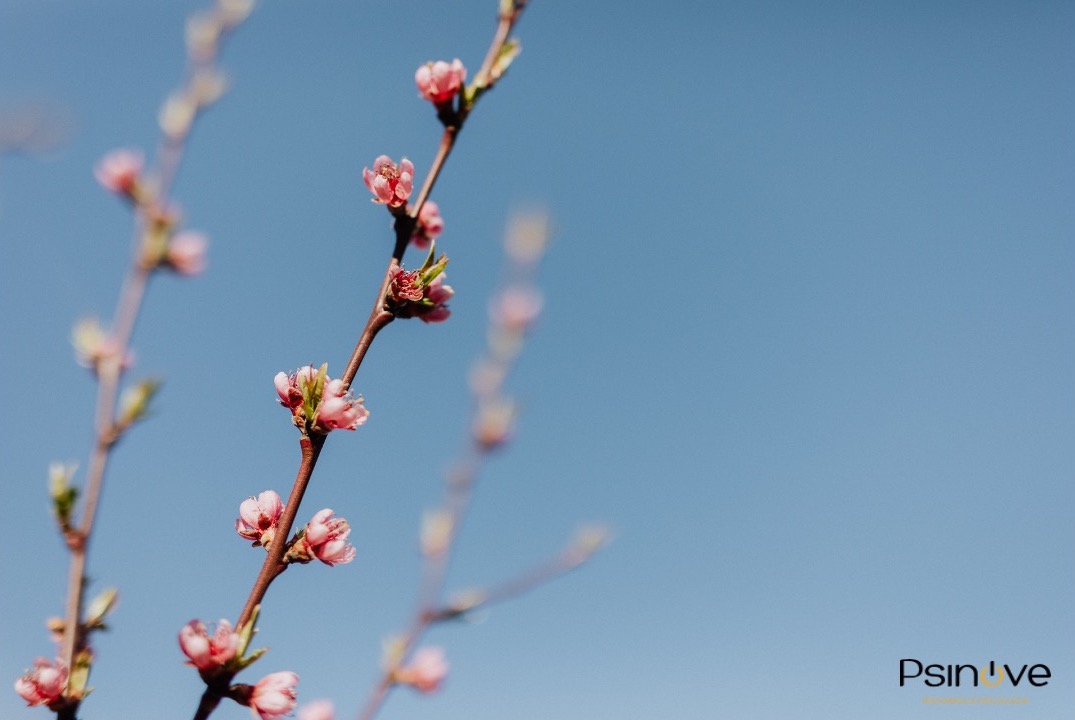About the richness of a moment
Blog written by the psychologists at Psinove. We explore topics related to psychology and psychotherapy, daily challenges, and reflections.

This morning I went out to go to the post office. On my way back home, I met two ladies in their eighties who, on a concrete bench in front of a shopping center, were selling, in ziplock bags, a modest quantity of loquats. In the sun, relaxed, they chatted and if someone happened to pass by, they would sell a bag. Although they had cleverly set up shop there - just on the day when the shops around reopened - anyone who saw them would say they were happy just to exist in that moment, one with each other, with the noise of normalcy in the background.
They didn't pay much attention to my presence, and when they noticed I was eyeing the loquats, they took out another bag to add to the three from which I could choose. "They are all good and sweet, but these might be a little more ripe," one of the ladies told me. I later confirmed that it was a good guess, but at that moment I cared little about the quality of the fruit. I found myself chatting, with a smile on my face, with an old lady who seemed to come from Beira - with her dress and all, which reminded me of my grandmother - and I felt the warm cheeks of the sun, the nose anticipating the sweetness of the loquats, and a comforting buzz around.
It was as if a part of me had forgotten how to use the senses to live in the world, perhaps as a consequence of the many hours in telecommuting and just enough isolation. Suddenly, I noticed and felt the various fractions of the experience of being there: enthusiasm, curiosity, hope... tenderness. On the way back, I tried to identify and preserve these sensations in my body for a few more minutes, like closing your eyes to try to return to a good dream. I succeeded, more or less.
From time to time I stumble upon this realization: it is really difficult to endure and explore pleasant emotions within us. It is relatively simple to understand at a cognitive level whether something is "good" or "bad" and even, if we are a little more psychologically versed, to use other words. We even inadvertently use the verb "to feel" to talk about what we think or do, but the distance remains. Incorporating emotions is difficult. Therefore, it is not uncommon for some of our positive experiences - sometimes even the ones that could be more striking - to occur in the realm of what is purely conceptual. As if we were happy with the brain, but not with the heart. And it is also not surprising that a consequence of this is a kind of Peggy Lee syndrome, where, disappointed, we ask ourselves - is that all there is?
This experiential amnesia of emotions that feel good to us is a misfortune that, one way or another, ends up touching our lives without us realizing it. In fact, I have often heard the sadness and frustration of my clients facing the difficulty of truly feeling satisfied with their professional achievements, or with their hobbies, or with some parts of their lives that "should" bring pleasant emotions to the surface.
Being fully with "good" sensations is not something that comes naturally to us. I could propose some explanations, but I think the most comprehensive one would be that socially we are profoundly oriented towards productivity. If, in most contexts, stopping to notice that we are angry or anxious is a waste of time, it is understandable how stopping to notice that we feel calm, satisfied, or proud is an even greater boldness. As a consequence, we are unlearning how to be with these emotions or just recognizing them in passing, as familiar concepts.
The image that comes to mind is that of a train journey between two cities. In that journey, it is difficult to enjoy the landscape because we really want to reach the destination. If necessary, we even take a nap to see if this speeds up. We hope that, upon arrival, everything will be better: happier, lighter, closer to our needs. But when we arrive, we need to catch another train, to another city a little further away. And so on.
The paradox is that in the more cerebral and conceptual search for pleasant emotions, we lose the process through which it is possible to create space for them to be felt. We want satisfaction and pleasure, but we neglect the small physical and temporal places where they can flourish. For emotions dwell in the senses, in perceptions, in the invisible connections that reality establishes with our body, at every moment.
What we call happiness thus exists in the present and conscious experience of all emotions, but especially of the pleasurable ones. For most people, including myself, this is a process that involves some learning, training, and patience. But little by little, it becomes easier.
In fact, I started all this reverie because of another realization, where I stumble less often:
If we allow ourselves to feel - and not so much to perceive - we become more permeable to the joy and comfort of the simple things in each experience. It seems very obvious, but happiness and well-being are not measured in inches. However, if it's to be measured in pounds, it would be one of loquats, please.




